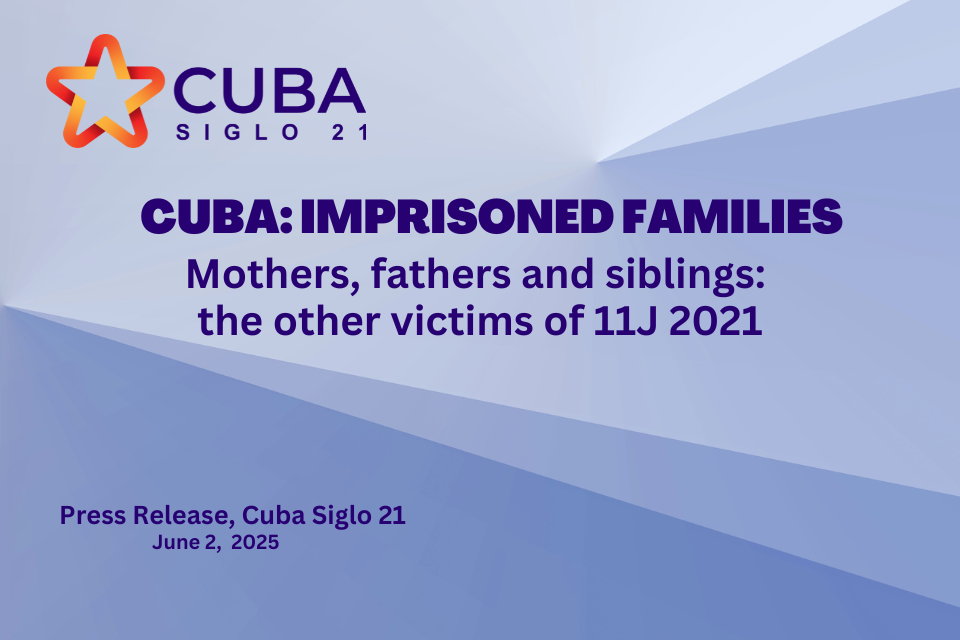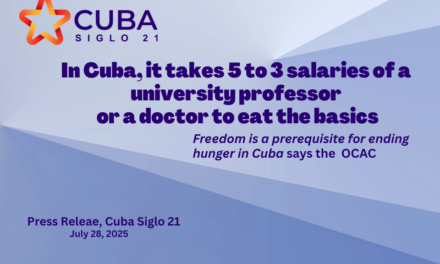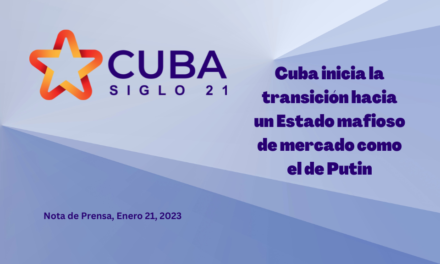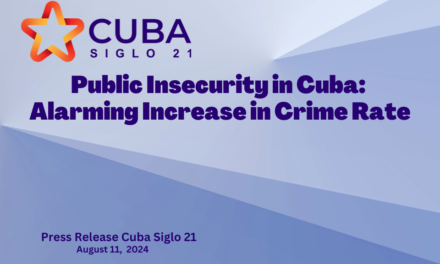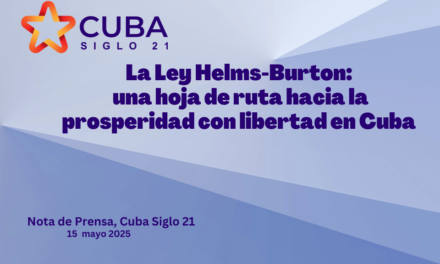Descargar informe en pdf
Download complete report in English
Resumen en Español
Summary in English
Mothers, fathers and siblings: the other victims of 11J 2021
June 2, 2025 –This 4th of June, a meeting of a technical committee between Cuba and the European Union will gather in Brussels to analyze the development of bilateral relations. It is expected the agenda will include the situation of human rights in the island. “CUBA: families victims of totalitarian politics”, a timely report published by the thinktank Cuba Siglo 21, documents an often-forgotten angle: the profound social, economic and psychological impact suffered by the families of political prisoners in Cuba, especially after the social outburst of July 11, 2021 (11J). The study, conducted by historian Leonardo M. Fernández Otaño, is based on direct observation of a sample of 15 households affected by state repression and reveals how ordinary citizens have been transformed into civic actors in the face of the regime’s authoritarianism.
The 11J protests -mainly led by young people between 20 and 35 years of age- arose as a reaction to a severe crisis in the governance system and the consequent deterioration of living conditions on the island. The government’s response was an unprecedented repressive offensive: more than 1,800 arrests, temporary disappearances, summary trials and convictions for crimes such as sedition and public disorder.
But the repression does not end in the courts. The report denounces what it defines as a “social death” induced by the State: families who, for having a child, espouse or partner in prison, are marginalized by the institutions that control their neighbors behavior in their communities, face harassment by State Security and lose job opportunities. In addition, they must pay for legal proceedings, travel to prison and inmate maintenance, all during galloping inflation and the country’s economic collapse.
The study describes a process of gradual politicization of these families, who have gone through four stages: breaking silence, complaining to official and official institutions, denouncing in social networks and public protest. Despite their inexperience in activism, many have managed to articulate with independent civil society inside and outside the island. Initiatives such as the Cuba in Mourning Movement and the submission of an Amnesty Bill to the Cuban Parliament by Wilber Aguiar are proof of this.
The report also warns about the psychological effects on families, especially on children and older adults. At least 40% of those interviewed suffer emotional crises, and many children have developed anxiety disorders. “Stress, fear and anxiety circulate even in the youngest,” warns psychologist José Otoniel Vázquez, quoted in the study.
Despite the human cost, the document stresses that the struggle of these families has gained international visibility and represents a key voice in the demand for a democratic Cuba. “The immediate and unconditional release of all political prisoners is a non-negotiable demand,” the report concludes.
Cuba Siglo 21 reaffirms its commitment to denounce repression, demand the unconditional release of political prisoners and support these families who, despite harassment, have broken their silence to demand justice and freedom.

